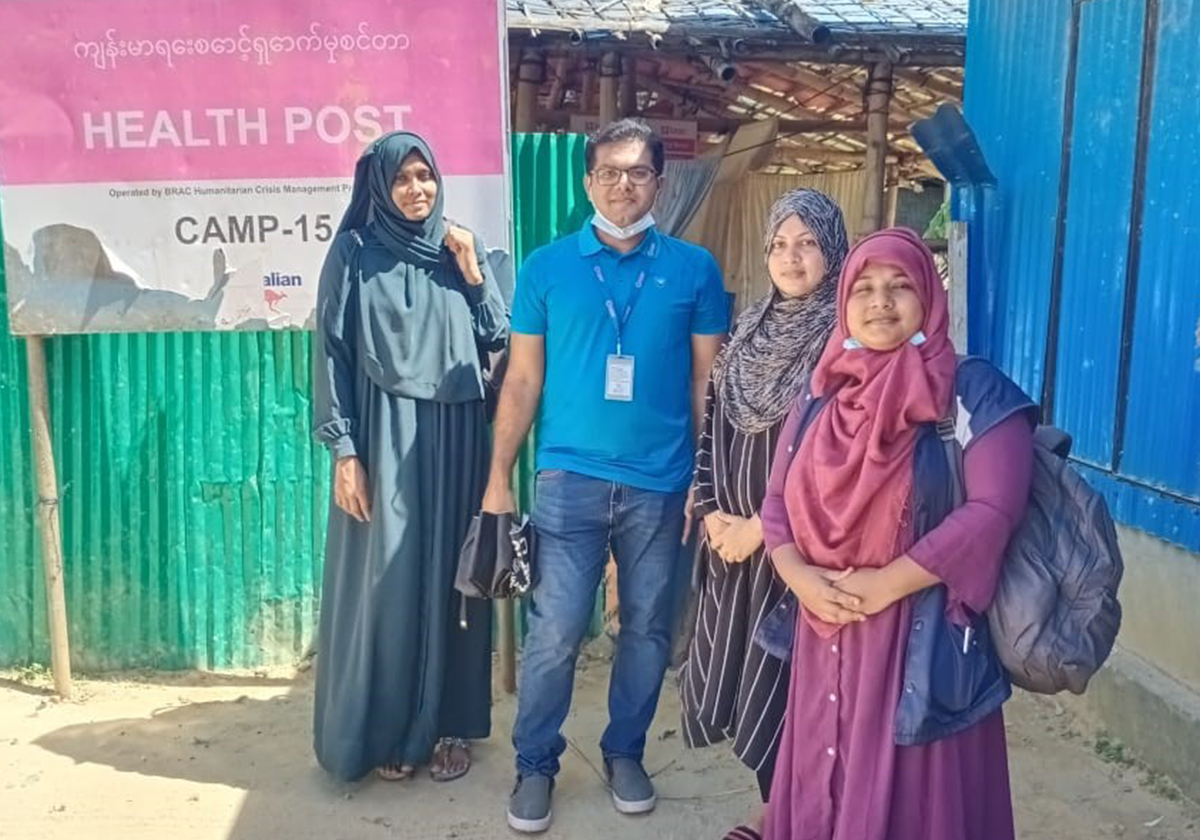
In 2021, Margaret A. Cargill Philanthropies (MACP) made a grant to Center for Reproductive Rights (CRR) to support a participatory and health rights-based accountability initiative in Cox’s Bazar, Bangladesh. Through this approach, the project aims to strengthen sexual, reproductive, and maternal health (SRMH) service delivery accessed by Rohingya women and girls.
This project is focused on gender equity, women’s and girls’ perspectives and health experiences, and social accountability, an approach that supports clients to voice their health needs and engage in improving their health system. CRR is working in close partnership with CARE Bangladesh and two national-level partners, Naripokkho and Bangladesh Legal Aid and Services Trust (BLAST).
“By adopting a rights-based approach and engaging all type of stakeholders in the Rohingya community we will not only increase the opportunities for people to meet their basic SRH needs, but we will ensure that people can live in dignity and without fear, and we will help to create an environment that promotes equity, justice and security for all,” shared Dr. Jafar Sadeque, Program Manager SRH and Humanitarian Response, CARE Bangladesh.
The ultimate goal of this project is that Rohingya women and girls have available, accessible, acceptable, and quality SRMH services, without discrimination and disrespect of any kind.
“Every Rohingya woman and girl deserves a life free from gender-based violence and the freedom of choice for their reproductive lives,” said Sadia Rahman, a technical coordinator with the Center for Reproductive Rights. “The Improving Access to Rights-based Reproductive Health Services in Cox’s Bazar effort has centered affected communities in all aspects of programming to ensure humanitarian systems are stronger and more accountable so that women and girls living in Rohingya camps can realize their rights and access justice.”
This project will demonstrate and document how health services delivered with a focus on health rights, such as respect, equity, and dignity, and participatory community-led monitoring and accountability systems are both feasible and effective in strengthening health systems and improving sustained SRMH outcomes for Rohingya women and girls.
Photo credit: Stakeholder visit by the CARE Bangladesh project team at the camp 15 Health Post, Cox’s Bazar. © 2022 Ela Khatun
